ARTICLE AD BOX
Dayanand Kalal recalls a story that sounds perfectly normal in wrestling-crazy Haryana but would seem almost mythical anywhere else. “The day Sujeet was born,” he says, “I held him and declared, ‘If all goes well, he’ll win a medal at the 2024 Olympics. If not, we’ll aim for 2028’.”
That was November 5, 2002.
Sujeet missed the Paris Olympics after being stranded for two days at a flooded Dubai airport while en route to a crucial qualification tournament. Now, at 23, he’s the name everyone’s whispering as the build-up to the 2028 Los Angeles Olympics gains momentum.
That reputation got another leg up on Monday night after Sujeet – a late bloomer and the very antithesis of a typical Indian pehelwan – won a gold/silver in the 65kg class at the Under-23 World Championships in Novi Sad, Serbia, beating Uzbekistan’s Umidjon Jalolov, who won a bronze medal at the Senior World Championships last month, 10-0 in the final. It’s only the third time an Indian male wrestler has won a gold medal at this level – only Aman Sehrawat (2022) and Chirag Chikkara (2024) have done this before, both in the 57kg category.
The 65kg category is a different beast, though – consistently one of the toughest and deepest weight classes in freestyle wrestling, and the one that Bajrang Punia ruled, domestically, for years.
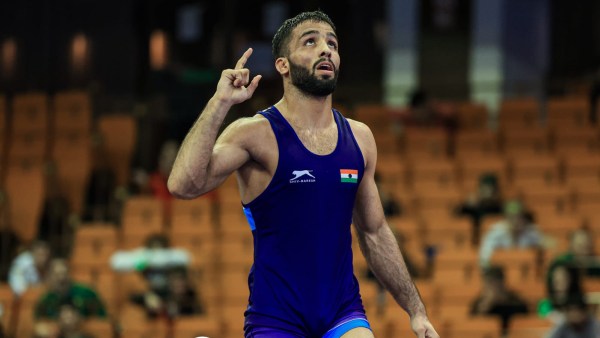 The 65kg category is a different beast, though – consistently one of the toughest and deepest weight classes in freestyle wrestling, and the one that Bajrang Punia ruled, domestically, for years. (UWW)
The 65kg category is a different beast, though – consistently one of the toughest and deepest weight classes in freestyle wrestling, and the one that Bajrang Punia ruled, domestically, for years. (UWW)
“He’s now fighting more maturely,” Dayanand says. “You can see it in his movements and the execution of tactics. We have spent many years learning all this, and it is slowly coming together.”
Dayanand is obsessed with wrestling. But Sujeet wasn’t his ‘project’, so to speak; while the son soared academically, the father was carving a wrestling career of his own. There’s a hint of pride when Dayanand begins to talk about one of the more famous wins – beating Sushil Kumar, fresh from his junior Asian Championship gold medal, at a dangal in Gurgaon back in 2000. “Par tab bacha tha woh (But he was a child then),” Dayanand blushes.
Over the next few years, he’d watch Sushil’s transformation from a prodigious talent into a beast from close quarters at the national camp. Dayanand himself became the Greco-Roman national champion in 2004 and went for the World Championships in 2005. But that’s where his career peaked.
Story continues below this ad
“I couldn’t fulfil my dream of winning an Olympic medal,” he says. “So, I decided to groom one by becoming a coach.”
Wherever Dayanand travelled to compete – Russia, Iran, the USA – he would closely study their systems and methods. Those notes came in handy when he turned to coaching in 2012. “India’s weakness has been poor basic skills. Consequently, we haven’t been able to win an Olympic gold. So, when I spent time in Colorado Springs in the US, my focus was on that – flexibility, speed, technique, tactics, movement… You have to teach these things when the wrestlers are young; this can’t be taught to an adult,” Dayanand says.
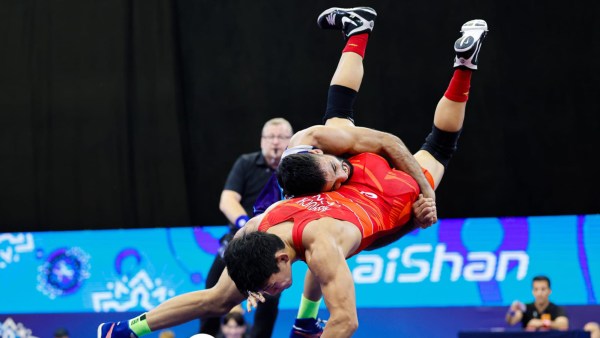 Sujeet missed the Paris Olympics after being stranded for two days at a flooded Dubai airport while en route to a crucial qualification tournament. Now, at 23, he’s the name everyone’s whispering as the build-up to the 2028 Los Angeles Olympics gains momentum. (UWW)
Sujeet missed the Paris Olympics after being stranded for two days at a flooded Dubai airport while en route to a crucial qualification tournament. Now, at 23, he’s the name everyone’s whispering as the build-up to the 2028 Los Angeles Olympics gains momentum. (UWW)
Sujeet became one of his first students. At 9, he got his first wrestling lesson; not any daavs but just movements on the mat. “When an experienced driver is behind the wheel of a car, he can seamlessly shift gears even if he is distracted. His brain is trained that way. My goal was to make Sujeet’s technique and movement second nature to him,” Dayanand says. “At its core, what is freestyle wrestling? Pairo mein jaana, pairo mein se bachna (You have to attack legs, you have to defend your legs). 50-60 per cent of the bout is just that. Anyone who masters this is a medal contender at the Olympics.”
It took three to four months to teach just one movement, and there were many, involving the hands, hips and legs. Academics, though, became Sujeet’s first calling – he scored more than 90 per cent in Class 12 and had ambitions to become an engineer. But when the time eventually came to choose between higher studies and wrestling, he decided to follow in his father’s footsteps. “The main focus was always studies. But he slowly started enjoying wrestling and wanted to give it a proper shot,” Dayanand says.
Story continues below this ad
He may have learnt the moves even before turning 10, but Sujeet seriously started wrestling only five years ago. And although he does not have vast competition experience, Sujeet has done enough to show he isn’t a quintessential ‘Indian type’ wrestler.
While most Indians, be it Sushil Kumar or Bajrang, have relied on stamina more than technique and aimed to tire out their rivals, Sujeet does the opposite – he puts into practice all the technical drills learnt over the years. “His explosive strength is at the level I haven’t seen in many Indian wrestlers,” his current coach Kuldeep Singh says.
Combine that with vicious single and double leg attacks, along with his signature bagal doop – in which he shifts from a double-arm lock into a quick feint beneath his rival’s arm, spinning to the back and freezing his opponent’s movement with a grip that leaves no room to breathe – and Sujeet has the moves in him to trouble the finest wrestlers.
He gave a glimpse of it at the Senior World Championships in September, when he gave former World Champion and 2024 Paris Olympics medallist Rahman Amouzad an almighty scare, and again on Sunday at the U23 Worlds when he took out Japan’s two-time U-20 World Champion Yuto Nishiuchi in the semis.
Story continues below this ad
“Since the focus has been on technique, he lacks a little in strength. But as he grows old and gains experience, that too shall improve,” Dayanand says. “Think of it, until five years ago, he wasn’t even preparing to be a wrestler.”
Then again, Sujeet’s fate was written the day he was born.



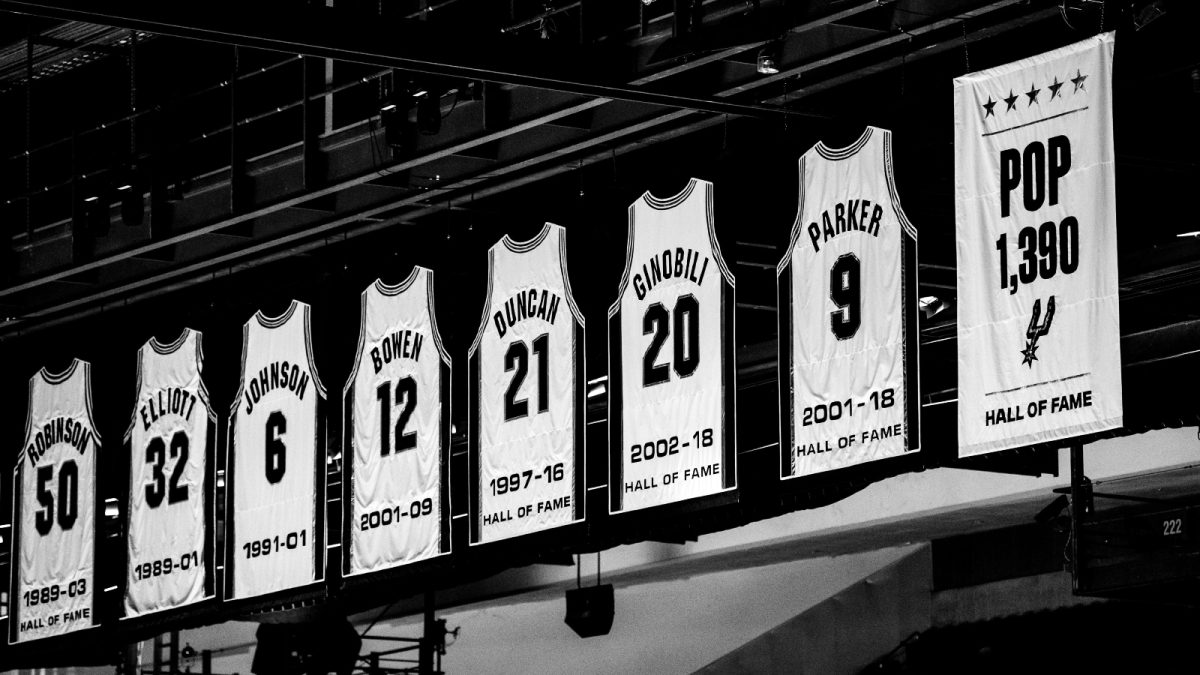


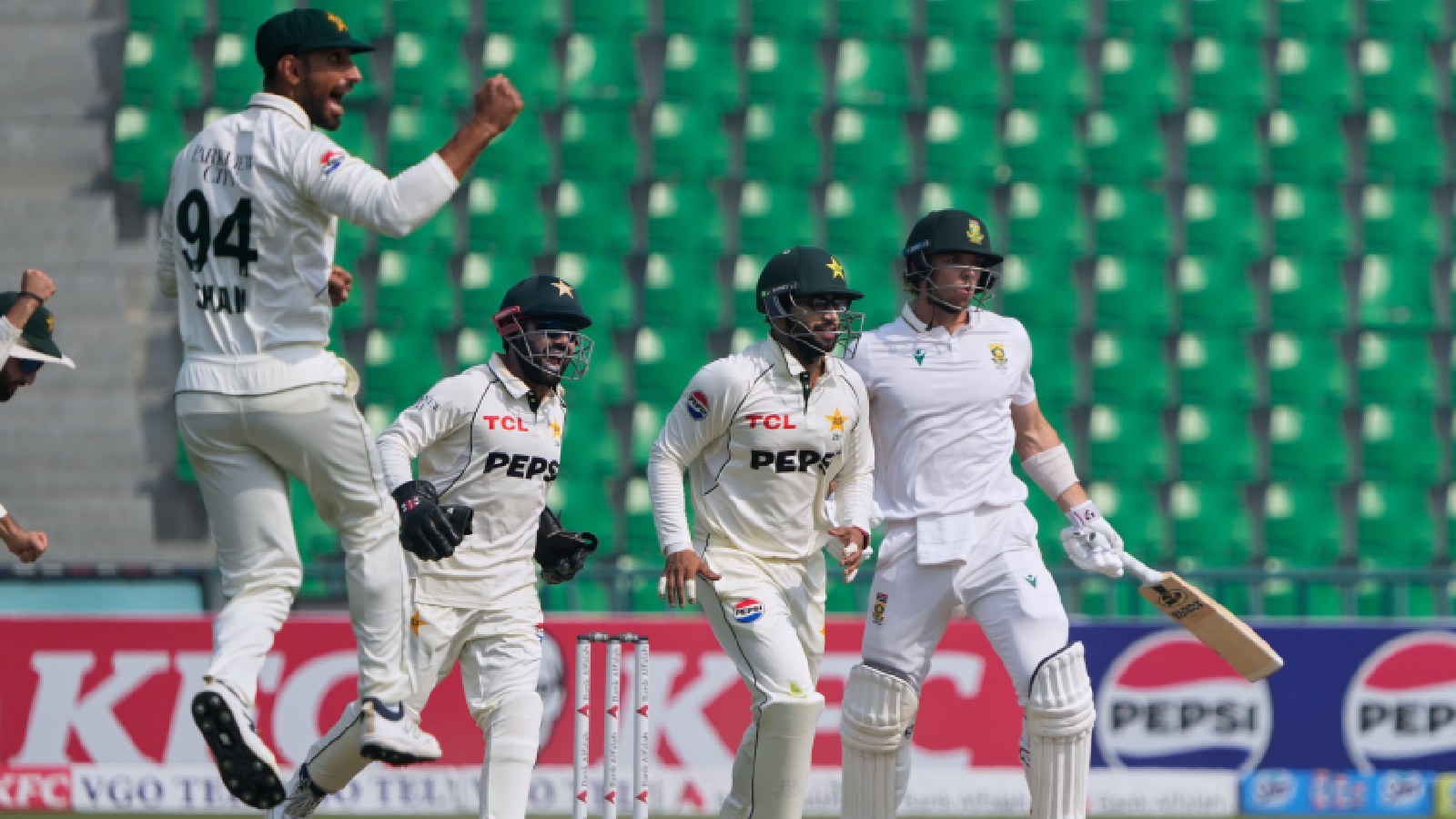
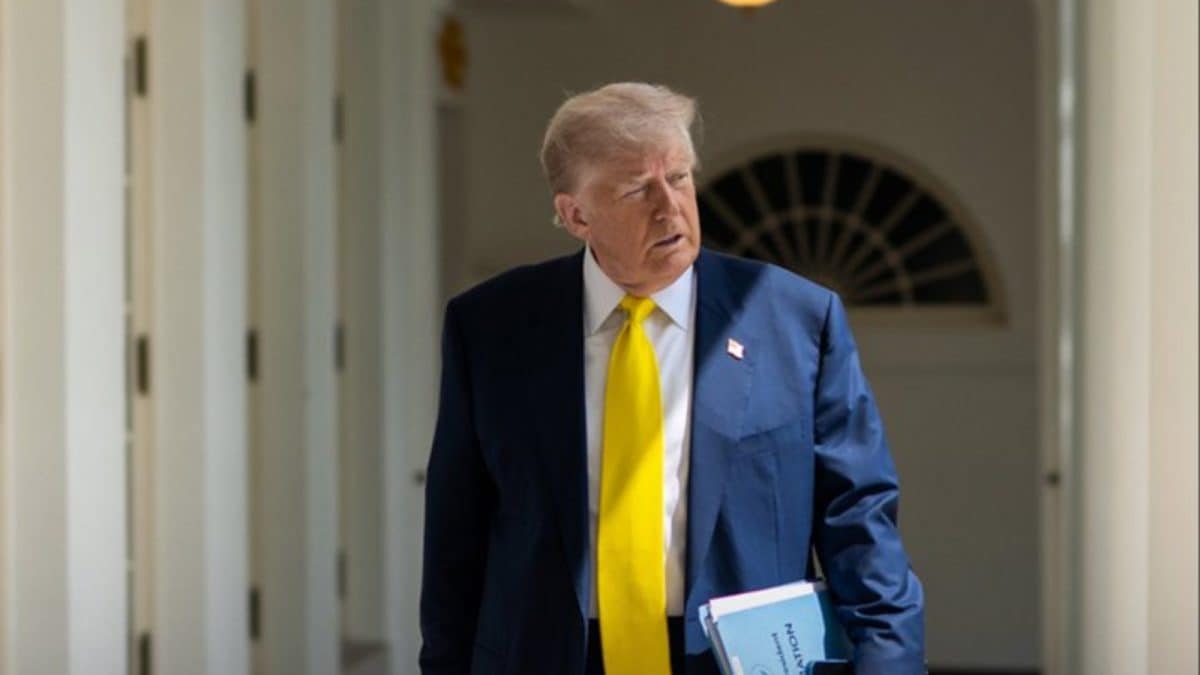

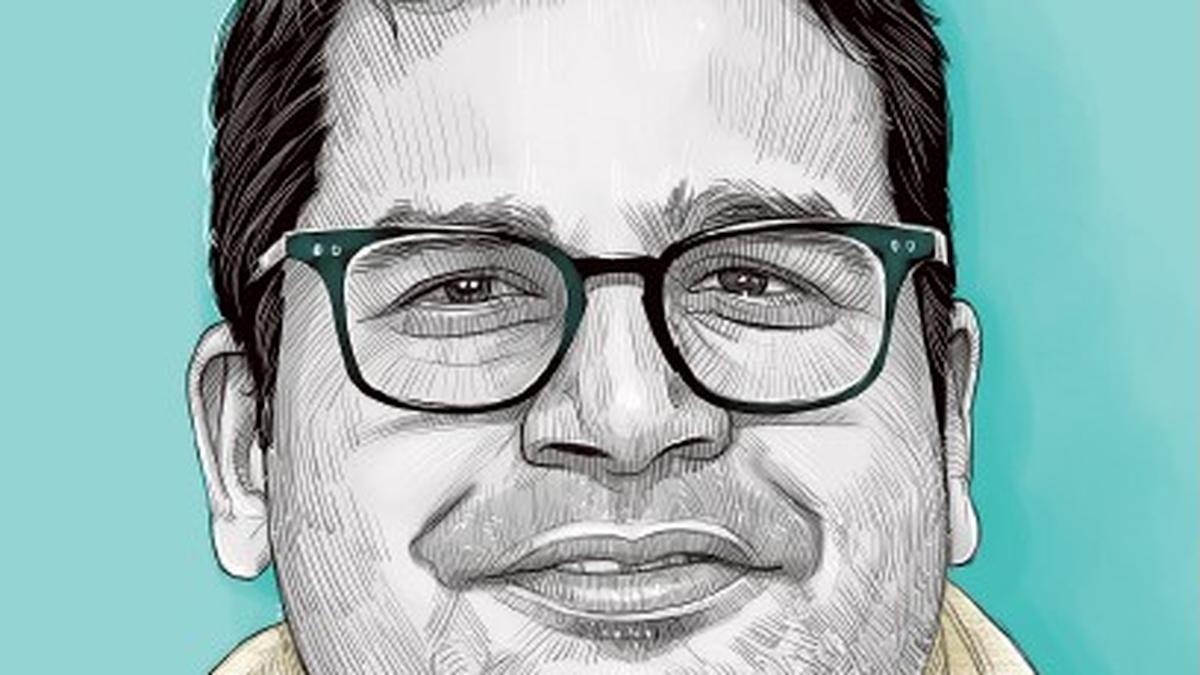
 English (US) ·
English (US) ·